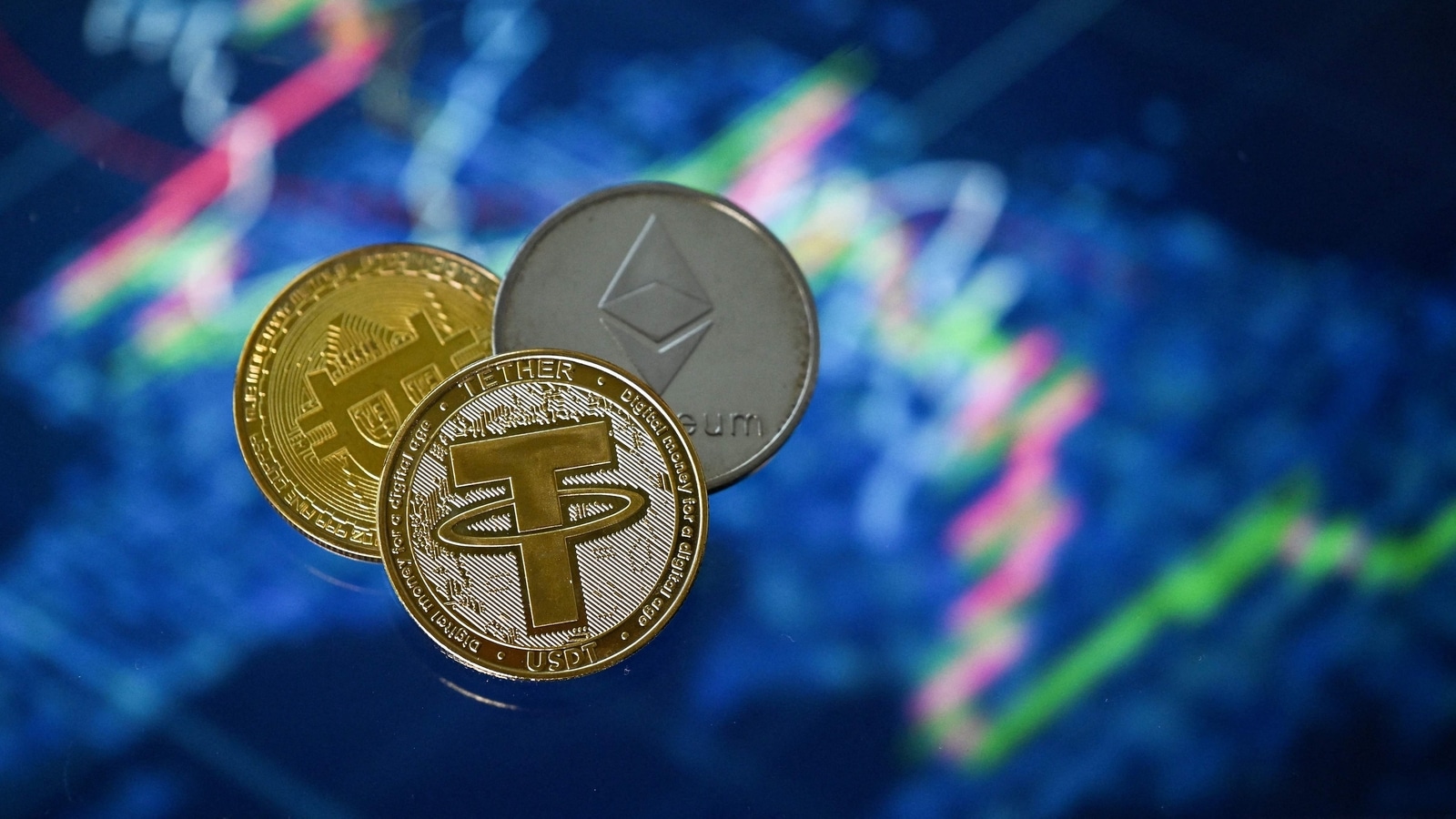Ponzi Schemes? Bitcoin, Terra to Tether, Crypto’s Chainsaw Massacre Bloodies Digital Exchanges
The Digital Exchanges that have promoted Bitcoin and other new currencies have a lot to answer for.

Cryptocurrencies only seem to “work” when prices are going up. On the way down, nothing functions as it should — a trait common to Ponzi schemes throughout history. In the current market carnage, the exchanges that have promoted digital currencies have a lot to answer for. Bitcoin, supposedly a store of value and inflation hedge in the eyes of luminaries such as Jack Dorsey or El Salvador's Nayib Bukele, is failing at both. It's down about 56% in six months as investors dump it for the traditional fiat money that crypto was supposed to disrupt.
Stablecoins such as Terra and Tether, designed to avoid wild swings in price through algorithmic management or backing by regular currencies and other traditional assets, have become unstable. TerraUSD is bouncing around 66 cents while Tether dropped below 95 cents Thursday, with selling pressure de-pegging them from the U.S. dollar.
And cryptocurrency exchanges, which have made big-name billionaires out of figureheads including Binance's Changpeng “CZ” Zhao or FTX's Sam Bankman-Fried, aren't exchanging. Binance has this week announced temporary suspensions, network congestion and derivatives delistings.
What this adds up to is a system-wide evaporation of money, confidence and trust — pretty ironic for a technology-based infrastructure that claims to revolutionize finance. Lengthy online debates about the investment case of individual tokens don't amount to a hill of magic beans in times of stress. The unwinding of speculative excess has made little distinction between NFT fuel Ethereum (down 57% in one year), SWIFT competitor Ripple (down 75%), or Elon Musk favorite Dogecoin (down 90%).
What might ordinarily result in falling knives worth catching looks more like “standing outside when it's raining chainsaws,” as Max Gokhman, chief investment officer for AlphaTrAI, put it earlier this week.
It would obviously be dangerous to assume animal spirits have evaporated for good. And given the feedback loop facing traditional financial markets, with crypto losses likely to incite a flight to cash rather than into the stock market, regulators have good reason to further ramp up the pressure on a nimble tech-savvy sector that always seems to stay one step ahead of supervisors.
“Traditional financial regulation isn't perfect but at least it has guardrails to avoid conflicts of interest and market manipulation,” says Aurore Lalucq, a member of the European Parliament's monetary and economic affairs committee. “Crypto products must be regulated like financial assets, which is what they are.”
While the current market collapse will clearly bring focus on the cryptocurrencies themselves, especially the $120 billion stablecoin market that regulators have warned poses a risk to financial stability, it is the outsized role played by crypto exchanges in this largely unregulated market that merits the most urgent attention.
Despite the widespread use of the term exchange, the likes of Binance and Kraken behave more like platforms. They combine several roles including brokerage, custody and lending, which raises the prospect of conflicts of interest. As Securities & Exchange Commission Chairman Gary Gensler told Bloomberg News this week, there's no guarantee of proper walls between safeguarding assets, market-making and profit-seeking that would stop platforms trading against their customers.
What makes this even murkier is platforms' position at the heart of the stablecoin complex. The three largest stablecoins — Tether, USD Coin and Binance USD — are all affiliated with exchanges, as Gensler also pointed out. They serve as fuel for the broader crypto market, bypassing the banking system and helping keep prices afloat. And exchanges have also made money offering stablecoin-related products backed by unsustainable rewards, such as the 19.6% yields offered for TerraUSD.
As allegedly unthinkable events like the de-pegging of major stablecoins become reality, basic questions on counterparty risk are returning to haunt investors. Would exchanges survive in the event of a blow-up of Tether, with a market value of over $80 billion? How confident can we be in an ecosystem where activity primarily takes place offshore? And if a U.S.-listed platform like Coinbase Inc. were to go under, what would happen to its customers' assets? Recent disclosures on this very point have only added to the pain on Coinbase's equity and debt securities.
As Martin Finnegan of Punter Southall Law wrote last year, the risk of posting funds in a world dominated by unregulated trading venues “cannot be understated.” Yet those risks have arguably been ignored, as demonstrated by the money that's flowed into exchanges from venture capital backers and institutional investors alike. Financial penalties related to issues of market integrity such as wash trading have done little to deter bad behavior and look, in hindsight, like inadequate slaps on digital wrists.
After the unraveling of the pandemic trading boom and the rise in inflation in much of the world, crypto is only one example of investments gone sour. But if regulators don't rise to the occasion, all markets will be viewed with suspicion. The house mustn't always win.
Lionel Laurent is a Bloomberg Opinion columnist covering digital currencies, the European Union and France. Previously, he was a reporter for Reuters and Forbes.
Catch all the Latest Tech News, Mobile News, Laptop News, Gaming news, Wearables News , How To News, also keep up with us on Whatsapp channel,Twitter, Facebook, Google News, and Instagram. For our latest videos, subscribe to our YouTube channel.































